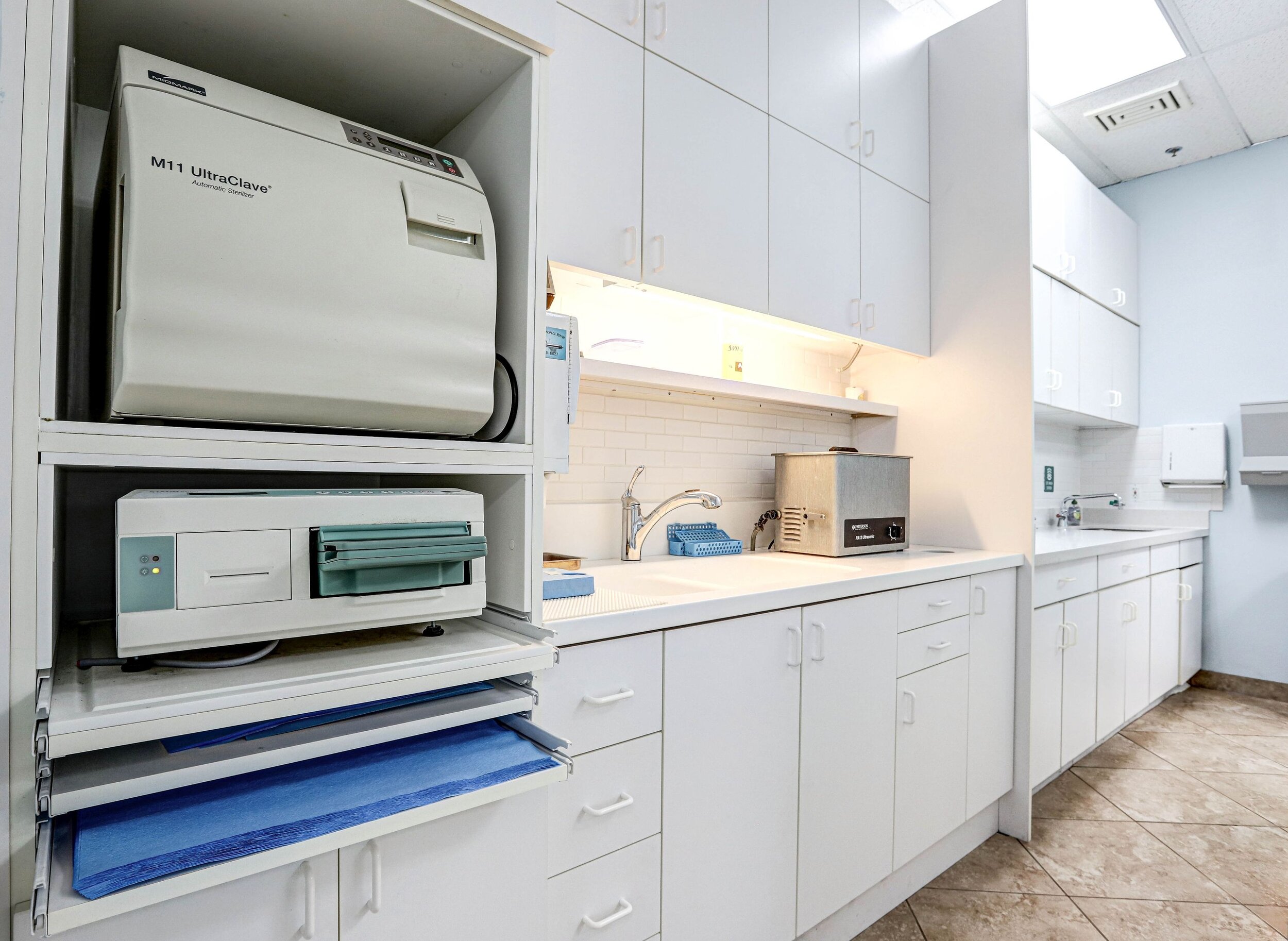
Dentures
Missing teeth can make your cheeks look hollow and your mouth look sunken. More importantly, your diet can suffer. Those missing multiple teeth may want to consider dentures for both cosmetic purposes and overall wellness. Depending on the number of teeth missing, we may suggest partial or full dentures. During your consultation, we’ll assess all your options and you can choose what you feel most comfortable with.
Partial
Partial dentures are ideal for those who are missing only a few teeth. They clasp onto the remaining gum line and any intact adjacent teeth. Even if you only have one tooth on your dental arch, a partial denture may still work best, since the remaining tooth serves as a natural anchor.
Complete
When you no longer have any remaining teeth a full denture prosthesis is necessary to restore proper appearance and function. You need to smile and eat. We can construct traditional dentures that are supported by your bone and gingival tissue. We can build implant supported dentures. Or, we can construct implant supported dentures that are actually permanently screwed into place. We can discuss what option is best for you.
Benefits of Dentures
Dentures are a restorative treatment that can take the place of missing teeth, despite losing them to injury, decay, or gum disease.
A boost to confidence by providing a full and beautiful smile.
An improvement to function, ability to speak, and proper chewing.
Facial features are supported by dentures, putting a stop to sagging cheeks.
They can be removed and cleaned if you do not wish to wear them at any given moment.
Caring for Dentures: You still need to brush your teeth!
Denture care is essential both for your dentures and your mouth. You should handle them very carefully to prevent dropping them. Have a towel or other object handy to catch them during the cleaning process.
Brush and rinse your dentures daily, but not with regular toothpaste. It’s a bad idea to use regular toothpaste because it can create microscopic scratches on your dentures. Brushing helps remove food and plaque just like regular teeth, and it also can prevent stains from forming on your dentures. There are specialized soft-bristled brushes made for dentures. Use the brush to gently clean every surface while taking caution not to damage the plastic or bend attachments. When you’re between brushings, make sure to rinse your dentures.
Toothpaste and household cleaners are too abrasive for rinsing dentures, and should not be used. Instead, hand soap or mild dishwashing liquid can be used. Bleach should never be used because it will whiten the pink parts of the dentures. There are also ultrasonic cleaners that may be utilized for denture care. They are small devices that hold a cleaning solution. You put the denture into the reservoir, and sound waves make a motion that cleans unwanted deposits, although this will never take the place of thorough daily brushings.
It’s imperative to keep your dentures moist when they’re not being worn because they could potentially dry up and lose their shape. If they’re not being worn, they should be put into water or a special cleaning solution. However, if the dentures have metal parts, they could potentially tarnish if placed in a soaking solution. You should also never use hot water, as that can warp dentures. Each dentist will have their own particular advice when it comes to your specific dentures.